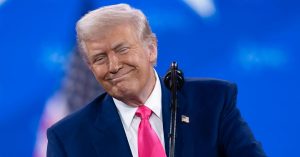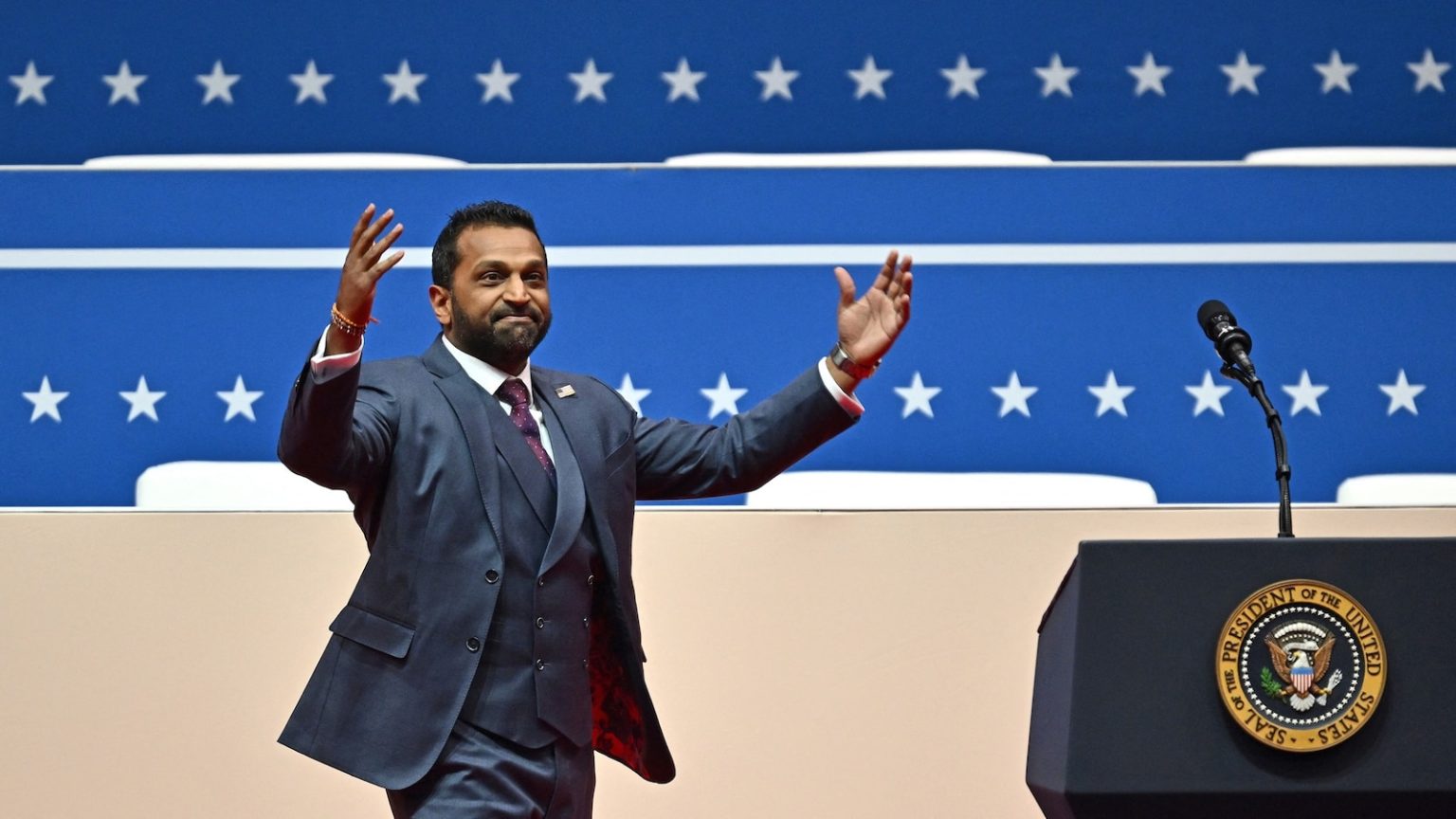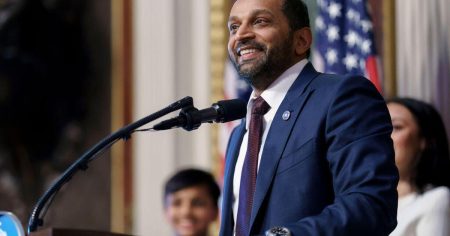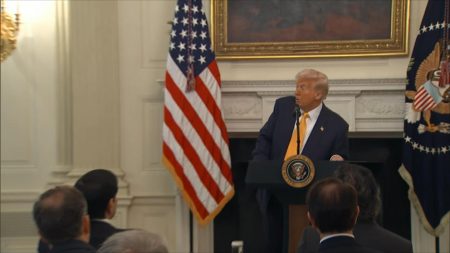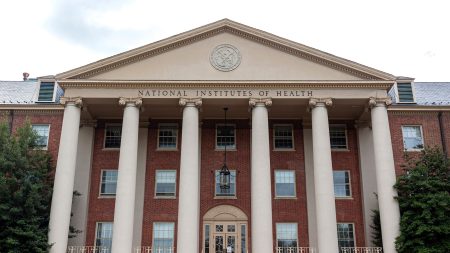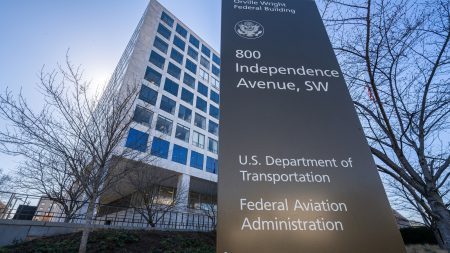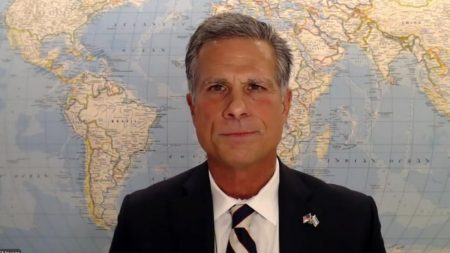Trump Set to Appoint Kash Patel as Acting Head of ATF Amid Agency Upheaval
A New Era at the ATF: Kash Patel’s Expected Appointment
In a move that signals significant changes within the federal bureaucracy, President Donald Trump is preparing to appoint Kash Patel, the current director of the Federal Bureau of Investigation (FBI), as the acting head of the Bureau of Alcohol, Tobacco, Firearms and Explosives (ATF). According to sources familiar with the matter, Patel is expected to be sworn into his new role early next week. This development comes amid a series of shifts at the ATF, which have drawn attention from both supporters and critics of the Trump administration.
Patel, who has been serving as the FBI director since February 2025, has been a close ally of the President. His appointment to the ATF is seen as part of a broader effort by the White House to reshape key agencies within the Department of Justice. The White House has not officially commented on the move, but insiders suggest that Patel’s new role is intended to align the ATF more closely with the administration’s priorities, particularly on issues related to gun rights and federal enforcement policies.
Background on Kash Patel: A Loyalist with a Controversial Past
Kash Patel, a name that has become familiar in Washington circles, has had a career marked by both achievement and controversy. Before his role as FBI director, Patel served in various capacities within the federal government, including stints at the Department of Justice and as a key figure in the Trump White House. His tenure has been characterized by a strong loyalty to the President and a willingness to take on high-profile roles, including his involvement in the investigation into the origins of the Russia probe during the Trump administration.
Patel’s appointment as acting head of the ATF is not without controversy. Critics have questioned his lack of direct experience in overseeing the specific areas the ATF regulates, namely alcohol, tobacco, and firearms. However, supporters argue that his leadership skills and familiarity with the Justice Department make him an ideal candidate to steer the agency during a time of upheaval.
The Departure of Pamela Hicks: A Catalyst for Change
The announcement of Patel’s expected appointment follows the recent firing of Pamela Hicks, the ATF’s general counsel, by Attorney General Pam Bondi. Hicks’ dismissal was reportedly due to concerns that the agency was overstepping its authority, particularly in its enforcement actions against gun owners. Bondi, in a recent interview with Fox News, stated that Hicks was “targeting gun owners” and that her actions were inconsistent with the administration’s commitment to protecting Second Amendment rights.
The firing of Hicks has been interpreted by many as a signal that the ATF is being reined in under the new leadership. The agency has long been a focal point of criticism, especially from Republican lawmakers, who have accused it of overreach in its enforcement of firearms regulations. Bondi’s decision to remove Hicks and Patel’s expected appointment are seen as part of a coordinated effort to shift the ATF’s priorities away from what some perceive as excessive regulation of gun ownership.
The ATF’s Evolving Role Under the Trump Administration
The ATF, tasked with regulating the sales and registrations of firearms nationwide, has found itself at the center of a contentious debate over gun rights. The agency’s primary mission is to enforce federal laws related to alcohol, tobacco, firearms, and explosives, but in recent years, it has faced increasing criticism from Second Amendment advocates who argue that its actions infringe on constitutionally protected rights.
In response to these criticisms, the Trump administration has taken steps to reorient the ATF’s focus. Earlier this month, President Trump issued an executive order instructing Attorney General Bondi to review actions that could infringe on the right to bear arms and to present a plan to the White House within 30 days. This move was widely seen as an attempt to address concerns among gun rights activists who have been critical of the ATF’s enforcement practices.
Bondi has already taken steps to align the ATF more closely with the administration’s agenda. In one of her first memos after being confirmed as Attorney General, she directed the agency to redirect resources away from its alcohol and tobacco enforcement divisions. Instead, these resources are to be focused on combating illegal immigration and transnational criminal organizations, priorities that align with the broader goals of the Trump administration.
Republican Criticism of the ATF: A Long-Standing Issue
The ATF has been a target of Republican criticism for years, with many lawmakers accusing the agency of overstepping its authority, particularly in its enforcement of firearms regulations. Critics argue that the agency’s actions often infringe on the Second Amendment rights of law-abiding citizens and that its priorities are misaligned with the concerns of the American people.
The current administration’s moves to reshape the ATF are, in part, a response to these criticisms. By appointing a loyalist like Kash Patel to lead the agency and by shifting its focus away from gun enforcement, the administration is signaling a shift in how it intends to approach issues related to firearms regulation. This shift is likely to be met with approval from gun rights advocates, but it has also raised concerns among those who believe that the ATF’s traditional role is essential to public safety.
The Implications of the ATF’s Shift in Focus
The decision to redirect the ATF’s resources toward combating illegal immigration and transnational crime reflects a broader strategy by the Trump administration to prioritize issues that resonate with its base. By focusing on illegal immigration, a issue that has been a cornerstone of Trump’s political platform, the administration is attempting to address concerns among voters who view border security as a critical issue.
However, this shift in focus has raised questions about the impact on the ATF’s traditional responsibilities, particularly in the areas of alcohol and tobacco enforcement. Some critics have expressed concerns that the agency’s ability to regulate these areas effectively could be compromised as a result of the reallocation of resources. This has led to speculation about whether the administration’s move is intended to reduce the ATF’s role in regulating firearms, a change that could have significant implications for gun control efforts in the U.S.
In conclusion, the expected appointment of Kash Patel as acting head of the ATF, coupled with the firing of Pamela Hicks and the shift in the agency’s priorities, represents a significant shift in the direction of the ATF under the Trump administration. These moves are likely to be viewed as a victory by gun rights advocates, but they also raise important questions about the balance between public safety and individual freedoms. As the ATF enters this new era under Patel’s leadership, it will be important to monitor how these changes impact the agency’s ability to carry out its mission and how they are received by various stakeholders.
